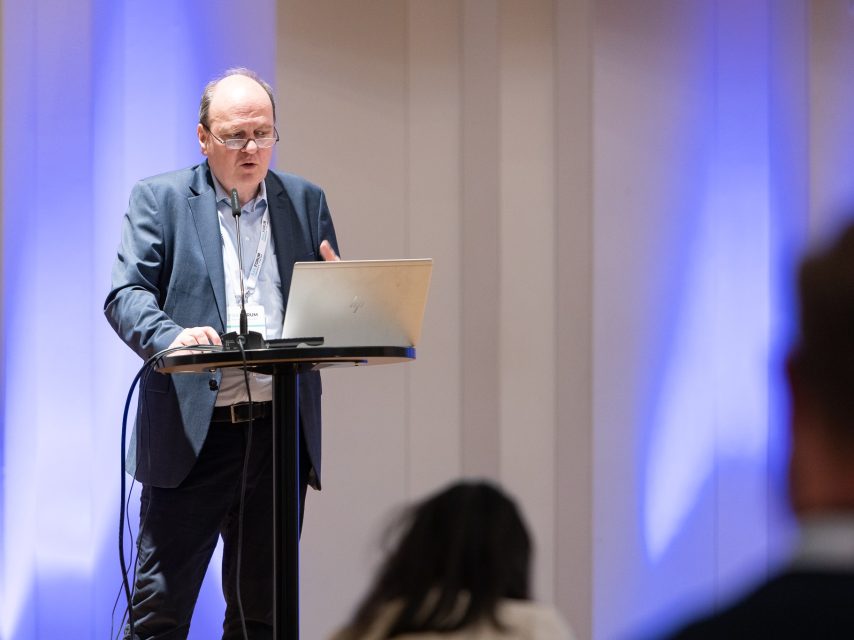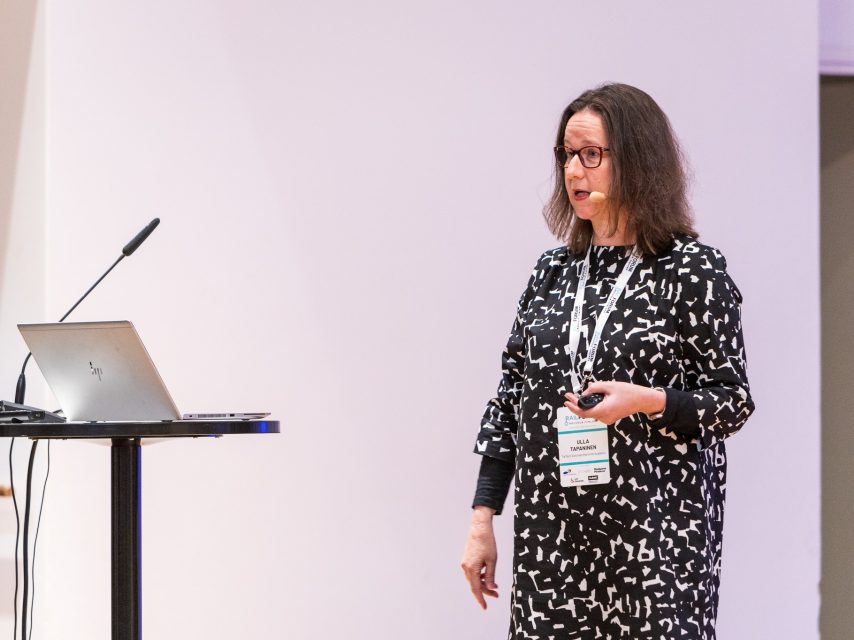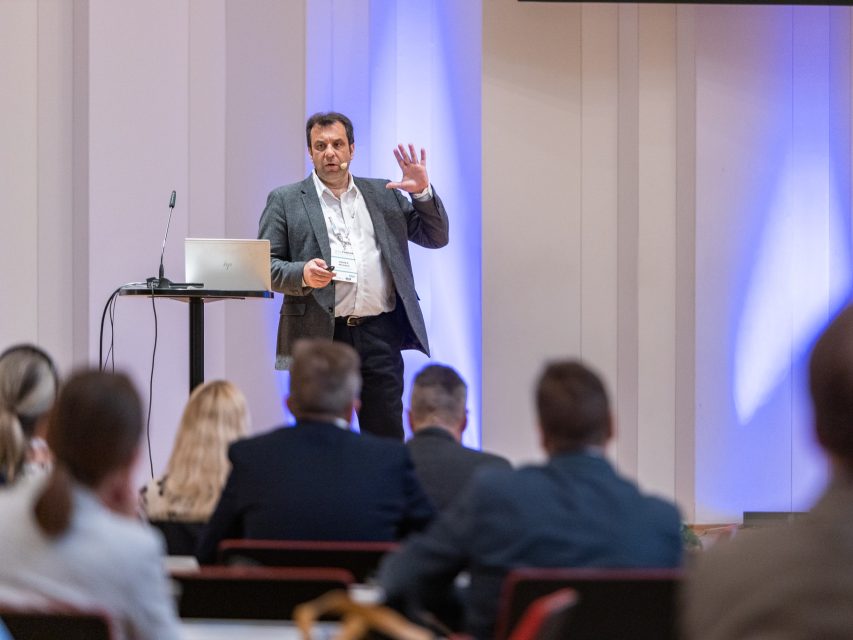Kouvola RRT is in the driver’s seat for smart and sustainable logistics

Finland’s first dry port is also a champion for the Green Transition. The Kouvola Rail & Road Terminal (RRT) enables a more versatile utilisation of environmentally friendly rail transport. But what other factors weigh in on the future of logistics? Keynote speakers from the Railforum2023 seminar organised in Kouvola provided the answers.
The Railforum 2023 seminar tackled sustainability issues, of which transport and logistics are integral. The good news for the Kouvola RRT is that it is already on the right track since it is a firm supporter of the combined transport model, which according to Ralf-Charley Schultze, head of the UIRR, is the “European solution” for today’s logistical and environmental challenges.
Apart from the optimal transport model that could assist in the Green Transition, there are other critical issues that the transport industry should take into account. For instance, abandoning fossil fuels and moving to new energy sources will be highlighted on transport companies’ agendas in the coming years. Yet, the transition may not be as imagined, and the industry, along with the broader society and economy, might need to find even more viable fuel alternatives than the existing ones.
Strong momentum but lots of work ahead
Schultze stressed that “combined transport is the most inexpensive, most efficient and least risky method available to us”. Some statistics he shared in Kouvola showed that combined transport uses 40-70 per cent less energy than transport that relies on only one mode of transportation. This is not only due to rail but also due to the electrification wave of car traffic that makes roads significantly greener.

“We have strong momentum in the Green Transition – and it is a historic opportunity that will not come twice,” he said, referring to both legislation and initiatives made by the industry’s innovative pioneers. However, he underlined that there is still much work to do. He used heavy truck traffic, producing a quarter of all traffic CO2 emissions, as an example. “The faster goods can be moved from trucks to trains, the better for the planet. At the European level, we must ensure that freight trains have sufficient infrastructure capacity at their disposal”, he emphasised.
Logistics reborn
Ulla Tapaninen, maritime transport professor for the Tallinn University of Technology, thinks along the same lines. According to her, transport logistics will change more during this decade than ever since trucks became the mainstay of logistics. “We are currently in a situation where transport operations – as we now know them – are no longer possible”, Tapaninen pointed out. However, she also offered some encouragement to the various actors in the field: changes should not be seen as problems but as opportunities for something bigger and better.

According to Tapaninen, it is now crucial that every transport logistics company reviews its dependence on fossil fuels and assesses alternative fuels, be they bio-based, hydrogen-based or electricity. “Companies should ask themselves, how exactly should we prepare for the rise in the prices of fossil fuels – and can we move transport to rails?”
The great mineral deficit
Simon P. Michaux, associate research professor from the Geological Research Center, is worried that great electrification may barely even get off the ground. According to him, the planet does not contain enough minerals to feed the Green Transition. “The present discussion focuses on CO2 emissions and climate change instead of the fact that we have dwindling, finite resources at our disposal”, he said.

Michaux called the current electrification push a “crack plan”, but he also believes there is still time to come up with a better roadmap. “We are not helpless in this matter. The Green Transition will happen – and it must happen – but not in the form we think.” Michaux is eyeing the current development of rail transport with interest. “The rail network plays a big role in reorganising the entire industrial value chain. Rail will become much more important.”
Also read:





